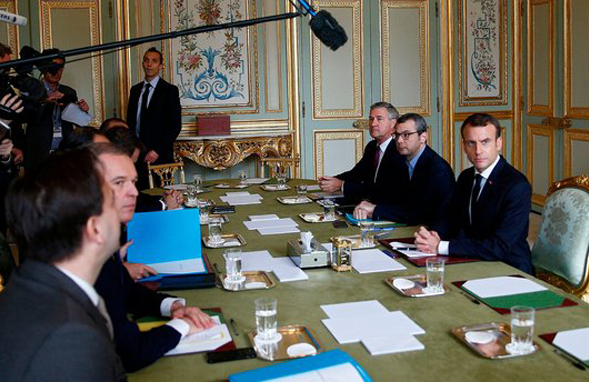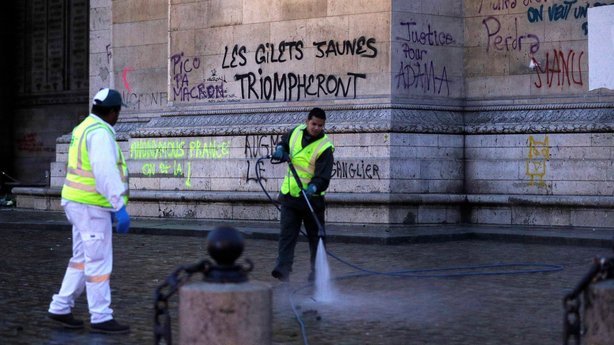
Government spokesman Benjamin Griveaux had indicated the Macron administration was considering imposing a state of emergency.
After car-riots and nationwide protests broke out on 2 December, the French President Emmanuel Macron has ordered the Prime Minister to hold talks with political demonstrators.
Rioters went amok in Paris’s wealthiest neighbourhoods, torching dozens of cars, looting boutiques and smashing up luxury private homes. This is the worst disturbance the capital has seen since 1968.
Though initially regarding fuel tax hikes, the riots have evolved to express anger against Macron’s economic reforms. After a meeting with members of his government today, the French presidency said in a statement that the president had asked his interior minister to prepare security forces for future protests and his prime minister to hold talks with political party leaders and representatives of the protesters.

An estimated 75,000 demonstrators, most of them peaceful, were counted across France yesterday, the interior ministry said. Violent groups from the far right and far left as well as youths from the suburbs infiltrated yesterday’s protests, the authorities said. Paris police said 412 people were arrested yesterday during the clashes and 378 were still in custody. A total of 133 had been injured, including 23 members of the security forces. Nearly 190 fires were put out and six buildings were set alight.
Mr Macron has so far refused to roll back taxes on fuel, which he says are needed to fund the country’s transition to a low-emission economy.








